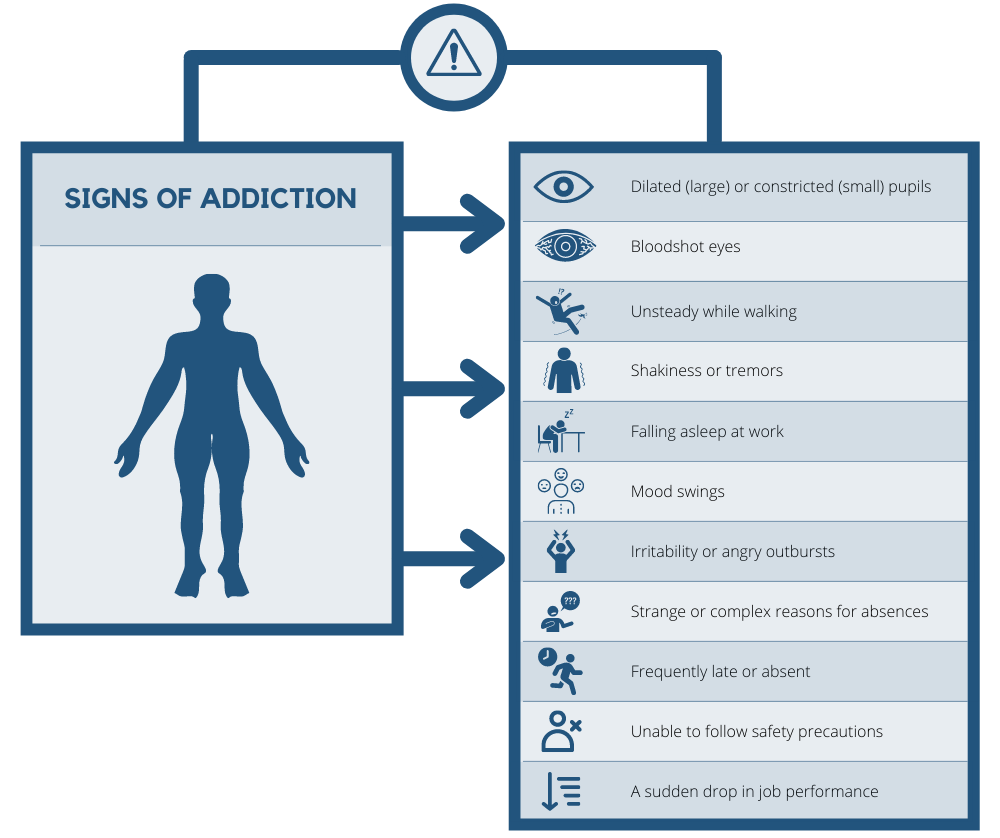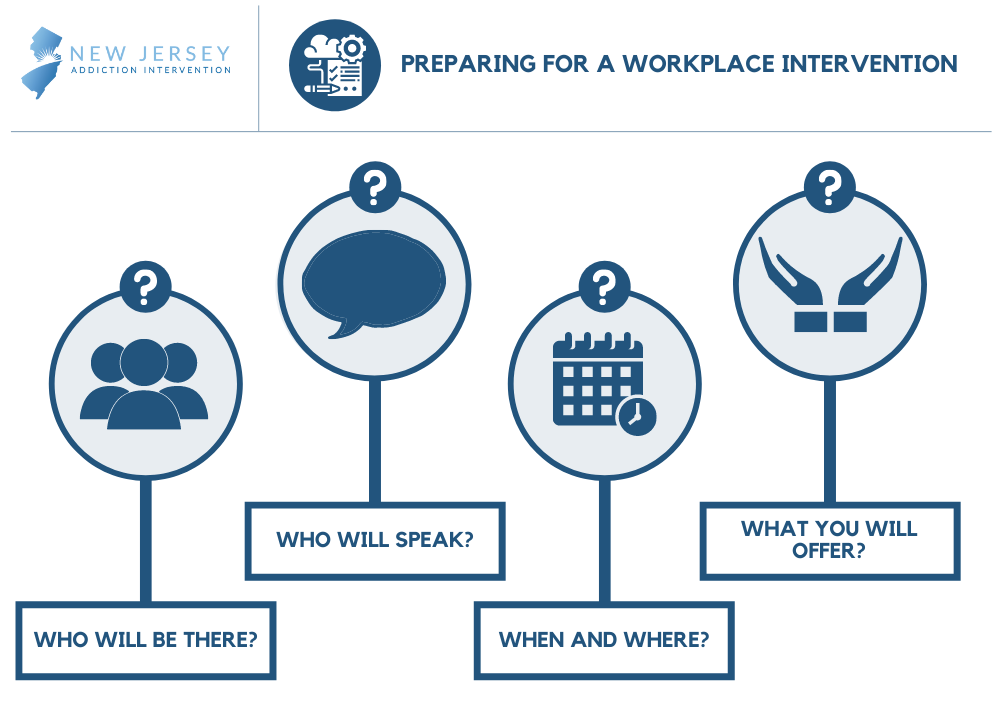For many people, coworkers are more than just people you work with–they’re friends, too. If you notice that a coworker is struggling with addiction, it’s natural to want to help. But starting a discussion about drug or alcohol abuse is hard, even with a loved one. With a colleague or employee, it can be an even trickier subject to bring up. Even when the signs of substance abuse seem obvious, you might hesitate to talk to your coworker about your concerns.
About 75% of people with a substance use disorder are employed.[1] Abusing drugs or alcohol while working puts everyone at risk. It costs the company higher healthcare expenses, and others often have to cover for frequent and unexpected absences. Besides being a workplace risk, substance abuse also negatively impacts people’s lives, and it can be hard to watch a work friend struggle. As a result, you may be considering staging an intervention for a coworker.
It’s possible to bring up the subject of a coworker’s substance abuse without making them feel ashamed or angry. It takes a little work and commitment, but you can do it. If you believe that you may need to stage a workplace intervention for a colleague, there are some steps you can take to make it as comfortable and effective as possible.
Recognizing Signs of Addiction
Before planning an intervention for a coworker, it’s important that you feel confident that your coworker is struggling with addiction. In some cases, it may be obvious. You may find physical evidence of their drug use or see your coworker drinking or using drugs. In other cases, though, it might be difficult to determine that substance abuse is the cause of the behavior you’re seeing.
There are some signs to watch out for, including:

- Dilated (large) or constricted (small) pupils
- Bloodshot eyes
- Unsteady while walking
- Shakiness or tremors
- Falling asleep at work
- Mood swings
- Irritability or angry outbursts
- Strange or complex reasons for absences
- Frequently late or absent
- Unable to follow safety precautions
- A sudden drop in job performance
In some cases, it might be clear that your coworker is struggling with addiction. In others, it might take some observation and time to be sure. Write down what you are noticing so you have a record of specific things that concern you.
Preparing for a Workplace Intervention

As you prepare for an intervention for a coworker, you will need to think about several important factors. Many people choose to hire a professional interventionist to help keep the intervention focused and ensure it will be effective. Especially in the case of an intervention for a colleague, it’s recommended that you bring in professional support. A professional interventionist can help you balance the needs of your coworker and the responsibilities and limits of the company you work for.
Who Will Be There
Ideally, the only people involved in the workplace intervention will be those who are close to the person at the center of it. It is more difficult to do this in a work setting than in a group of friends and family. Consider people on this person’s team, close colleagues, and people they have worked with for a long time. These coworkers are more likely to be genuinely concerned and affected by the person’s substance use.
Who Will Speak
Your intervention should have a script and schedule. This will include personal statements about your coworker’s substance use and its effects on the workplace. Plan who will speak, write down what you want to say, and practice the whole intervention ahead of time, if possible. This will keep the intervention focused and on track.
When and Where
Choose a time when the person is not likely to be under the influence. Pick a private place where you and the others will feel safe to share freely. Make sure you have enough time–generally, one to two hours–to go through the process of the intervention for your struggling coworker.
What You Will Offer
Most interventions involve a demand for the person to begin substance abuse treatment. A workplace intervention may do the same, or you may choose other consequences based on the advice of the company’s legal department or the advice of a professional interventionist. What is important is that you have a concrete offer in place. This might involve research into local rehab centers or advice from your human resources department.
Holding an Intervention for a Coworker
When the day arrives, you and your team will hold the intervention for your colleague. It is important that you try to remain calm, focus on your prepared statements, and try to avoid any emotional escalation.
Sometimes an intervention at work goes well, but sometimes they do not result in the person getting the help they need. Before you begin the intervention, you and your team must decide what will happen afterward in either case. If your coworker agrees to get treatment, you can help them get started in the program you’ve offered for them. If your coworker does not agree to get help, you must all follow through on the consequences you’ve chosen. That might include stopping any enabling behaviors, job termination, or another consequence that makes sense in your situation. Some people choose to wait for a period of time and try another intervention.
No matter what happens, it is important to take care of yourself and the other people involved in the intervention. It can be a highly emotional event, even if it is calm on the surface and successful. People involved may benefit from talking about what went well, what did not, and how you can support each other afterward.
Get Help Staging an Intervention for a Colleague Today
If you or someone you love needs substance abuse treatment or help at any stage of addiction or recovery, please reach out to the staff at New Jersey Addiction Interventions. We offer a range of programs designed to support and empower people as they work through addiction. Do not wait another day for life-saving treatment. Call today to get started.
References:
Medically Reviewed: June 18, 2021

All of the information on this page has been reviewed and verified by a certified addiction professional.

